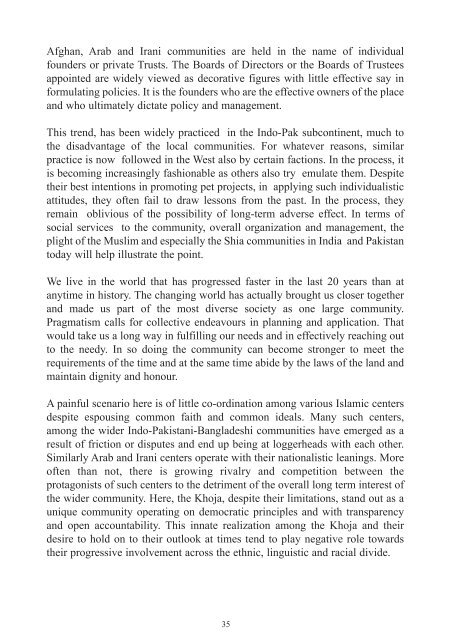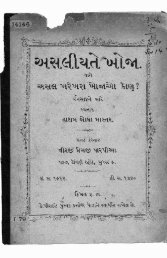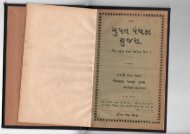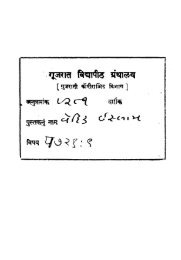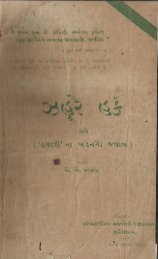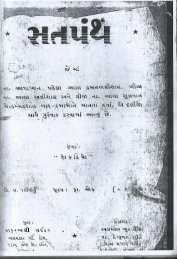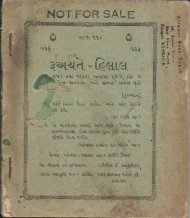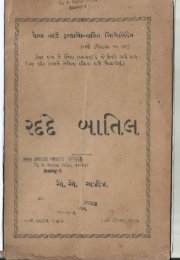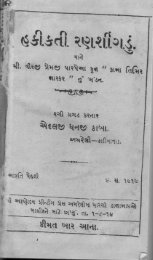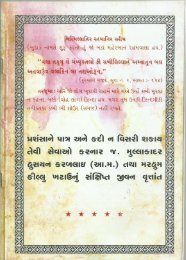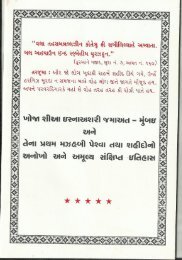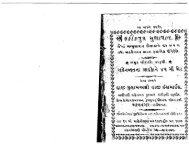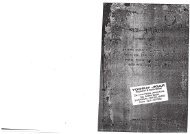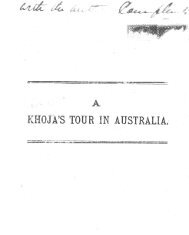Sowing and Reaping of Destiny
Create successful ePaper yourself
Turn your PDF publications into a flip-book with our unique Google optimized e-Paper software.
Afghan, Arab <strong>and</strong> Irani communities are held in the name <strong>of</strong> individual<br />
founders or private Trusts. The Boards <strong>of</strong> Directors or the Boards <strong>of</strong> Trustees<br />
appointed are widely viewed as decorative figures with little effective say in<br />
formulating policies. It is the founders who are the effective owners <strong>of</strong> the place<br />
<strong>and</strong> who ultimately dictate policy <strong>and</strong> management.<br />
This trend, has been widely practiced in the Indo-Pak subcontinent, much to<br />
the disadvantage <strong>of</strong> the local communities. For whatever reasons, similar<br />
practice is now followed in the West also by certain factions. In the process, it<br />
is becoming increasingly fashionable as others also try emulate them. Despite<br />
their best intentions in promoting pet projects, in applying such individualistic<br />
attitudes, they <strong>of</strong>ten fail to draw lessons from the past. In the process, they<br />
remain oblivious <strong>of</strong> the possibility <strong>of</strong> long-term adverse effect. In terms <strong>of</strong><br />
social services to the community, overall organization <strong>and</strong> management, the<br />
plight <strong>of</strong> the Muslim <strong>and</strong> especially the Shia communities in India <strong>and</strong> Pakistan<br />
today will help illustrate the point.<br />
We live in the world that has progressed faster in the last 20 years than at<br />
anytime in history. The changing world has actually brought us closer together<br />
<strong>and</strong> made us part <strong>of</strong> the most diverse society as one large community.<br />
Pragmatism calls for collective endeavours in planning <strong>and</strong> application. That<br />
would take us a long way in fulfilling our needs <strong>and</strong> in effectively reaching out<br />
to the needy. In so doing the community can become stronger to meet the<br />
requirements <strong>of</strong> the time <strong>and</strong> at the same time abide by the laws <strong>of</strong> the l<strong>and</strong> <strong>and</strong><br />
maintain dignity <strong>and</strong> honour.<br />
A painful scenario here is <strong>of</strong> little co-ordination among various Islamic centers<br />
despite espousing common faith <strong>and</strong> common ideals. Many such centers,<br />
among the wider Indo-Pakistani-Bangladeshi communities have emerged as a<br />
result <strong>of</strong> friction or disputes <strong>and</strong> end up being at loggerheads with each other.<br />
Similarly Arab <strong>and</strong> Irani centers operate with their nationalistic leanings. More<br />
<strong>of</strong>ten than not, there is growing rivalry <strong>and</strong> competition between the<br />
protagonists <strong>of</strong> such centers to the detriment <strong>of</strong> the overall long term interest <strong>of</strong><br />
the wider community. Here, the Khoja, despite their limitations, st<strong>and</strong> out as a<br />
unique community operating on democratic principles <strong>and</strong> with transparency<br />
<strong>and</strong> open accountability. This innate realization among the Khoja <strong>and</strong> their<br />
desire to hold on to their outlook at times tend to play negative role towards<br />
their progressive involvement across the ethnic, linguistic <strong>and</strong> racial divide.<br />
35


